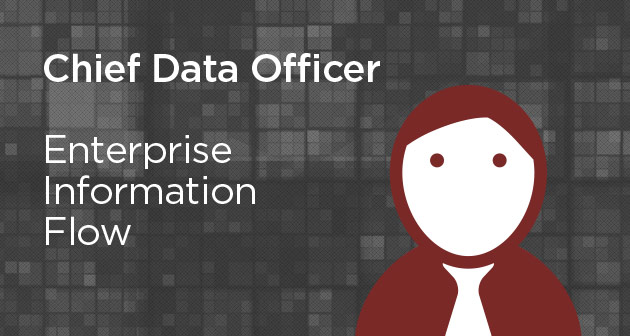
Enterprise Information Flow is a new concept with a broader approach to data management and a focus on the whole lifecycle of data within an institution. We already introduced EIF in our last blogpost on this topic, so today we are going to focus on the actual benefits of different disciplines when managing big data in any system, especially for your CDO. The Chief Data Officer is a key figure in any organization; he or she is responsible for enterprise-wide governance, the utilization of information, and also for defining the overall strategy for the organization’s data management.
How will your Chief Data Officer benefit from conceptualizing data management via Enterprise Information Flow?
Enterprise Information Flow combines and broadens views of enterprise architecture which are necessary for its management, such as:
- Generalization of data objects (units, terms, etc.)
- Description of persistent data storage
- Management of data transformation and mappings
- Data quality (especially its credibility, aptness of representation, interpretability, objectivity, relevance, reputation, added value, etc.)
- Collaboration of users and apps
- Connection between user’s roles and particular information artifacts
- Security attributes
The implementation of EIF will help your CDO and other relevant business intelligence professionals (information managers, etc.) to:
- Ensure the right level of security for particular information
- Grant users access to information with the corresponding security level
- Measure the importance and objectivity of information
- Sort information by its importance and means of use
- Measure the costs of information processing
- Manage infrastructure and modify information flows accordingly
- Filter information sources with low added value
The Goals of Data Governance
Data governance is now a standard procedure in every organization with enterprise-level data warehouse. Data is considered to be valuable property, in many cases even the most valued of all. Data governance usually consists of planning, managing and controlling processes. For example, The DAMA Guide to the Data Management Body of Knowledge provides a framework, which is considered essential by many professionals in the field. When it comes to data governance, The DAMA Guide lists these goals which every serious CDO wants to achieve:
- To define, approve, and communicate data strategies, policies, standards, architecture, procedures, and metrics.
- To track and enforce regulatory compliance and conformance to data policies, standards, architecture, and procedures.
- To sponsor, track, and oversee the delivery of data management projects and services.
- To manage and resolve data related issues.
- To understand and promote the value of data assets.
From the goals defined by The DAMA Guide it is absolutely clear that it’s necessary to have complete knowledge of all data and its lifecycle; connections between applications; and connections with sales and management processes. And that’s exactly what Enterprise Information Flow is about.
Next time we are going to focus on some other benefits of thinking about your data quality and open data within concept of Enterprise Information Flow. Feel free to share your ideas with us on Twitter or via email.